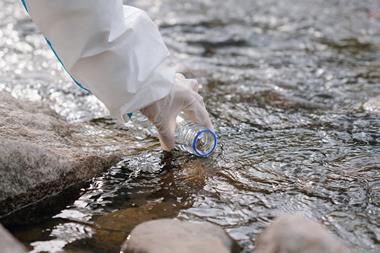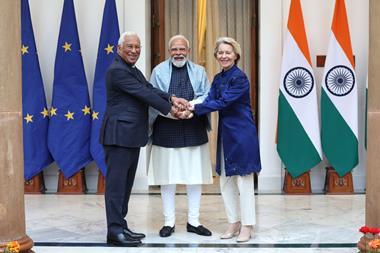Just three consortia will now compete for UK government funding to build a CCS demonstration plant
BP has pulled out of the UK government’s carbon capture and storage competition, leaving just three companies still bidding to build a government-backed CCS demonstration plant in the UK.
On 30 June the government announced the four consortia shortlisted for the competition from nine initial contenders. With BP Alternative Energy’s withdrawal from the competition, the three bidders remaining are E.ON UK, Peel Power, and Scottish Power.
CCS is central to the UK’s plans to tackle climate change. On 16 October, in his first statement as head of the newly created department of energy and climate change (DECC), Ed Miliband committed the UK to cut carbon emissions to 80 per cent of 1990 levels by 2050 - and stressed the importance of investing in CCS to cut emissions.
But BP is now quitting the CCS competition, because it was unable to find a power generator to partner with to put together a consortium. ’We prequalified for the competition without a specific project in mind, intending to partner with a power generator to put together a winning bid,’ a BP spokesman told Chemistry World. However, having talked to potential partners, the company decided it couldn’t form a consortium likely to produce a viable scheme.
BP insists that its withdrawal from the UK competition doesn’t represent a shift in the company’s policy on CCS. The company is still involved in two CCS projects, one in Abu Dhabi and the other in California.
Competition continues
Despite BP’s withdrawal, the UK government plans to continue with the competition. ’We continue to have three strong bidders who are committed to the project and to CCS,’ said a DECC spokesman. ’BP’s decision does not compromise the integrity of the competition nor will it have a material impact on the robustness of the procurement process.’ The government has ruled out reconsidering any of the earlier bidders who didn’t make the original four company shortlist. One such company is RWE npower, who are now seeking a judicial review of the selection process after failing to make the shortlist.
The company is unhappy that it didn’t get the chance to address any perceived shortcomings in its bid - for which it had put together a ’major consortium,’ a spokesman said. RWE already has plans to test CCS at its Didcot power station, and is currently in discussions with the companies who were shortlisted over the possibility of forming a consortium to re-enter the competition.
James Mitchell Crow
Enjoy this story? Spread the word using the ’tools’ menu on the left.






No comments yet